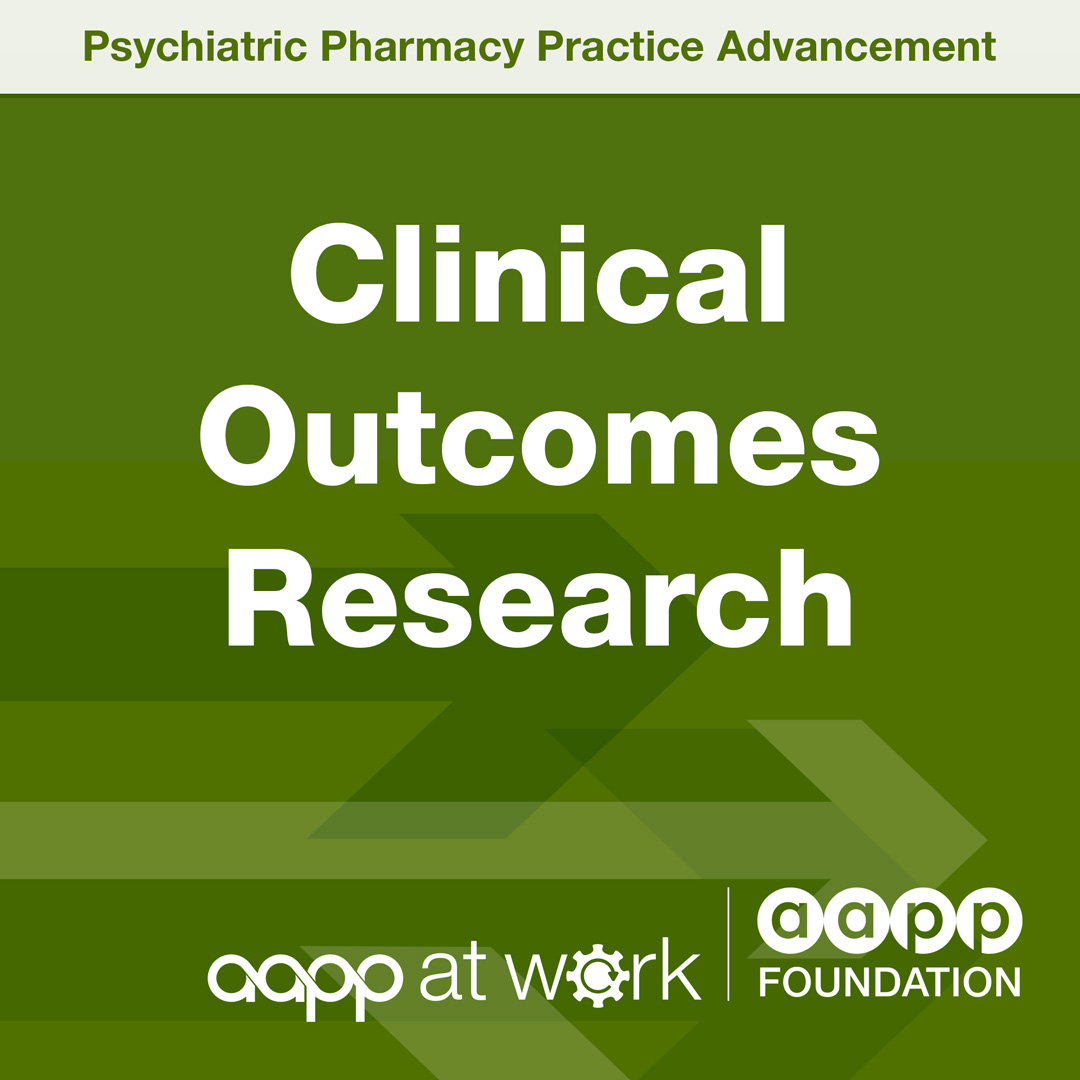
In 2023, AAPP committed up to $500,000 to directly support multi-site research related to the impact of psychiatric pharmacists on patient care through the AAPP Foundation.
In 2024, the Foundation awarded $247,352 to the project, "Psychiatric pharmacist management of cardiometabolic risk for adults with serious mental illness in outpatient safety-net mental health clinics in San Francisco." The primary investigator and co-investigators are Esti Iturralde, PhD, Anne Rosenthal, MD, and Hannah Van Ochten, PharmD of Kaiser Permanente Northern California Division of Research.
In 2025, the Foundation awarded $249,786 to the project, “Alternate Prescriber Type - Depression Management (Trial APT-DM): Impact of Psychiatric Pharmacist on Major Depressive Disorder in Primary Care” The co-principal investigators are Dr. Nathaniel Rickles (UConn School of Pharmacy), Dr. Wilner Samson (Hartford Healthcare), and Dr. Charles Caley (Western New England University College of Pharmacy and Health Sciences).
